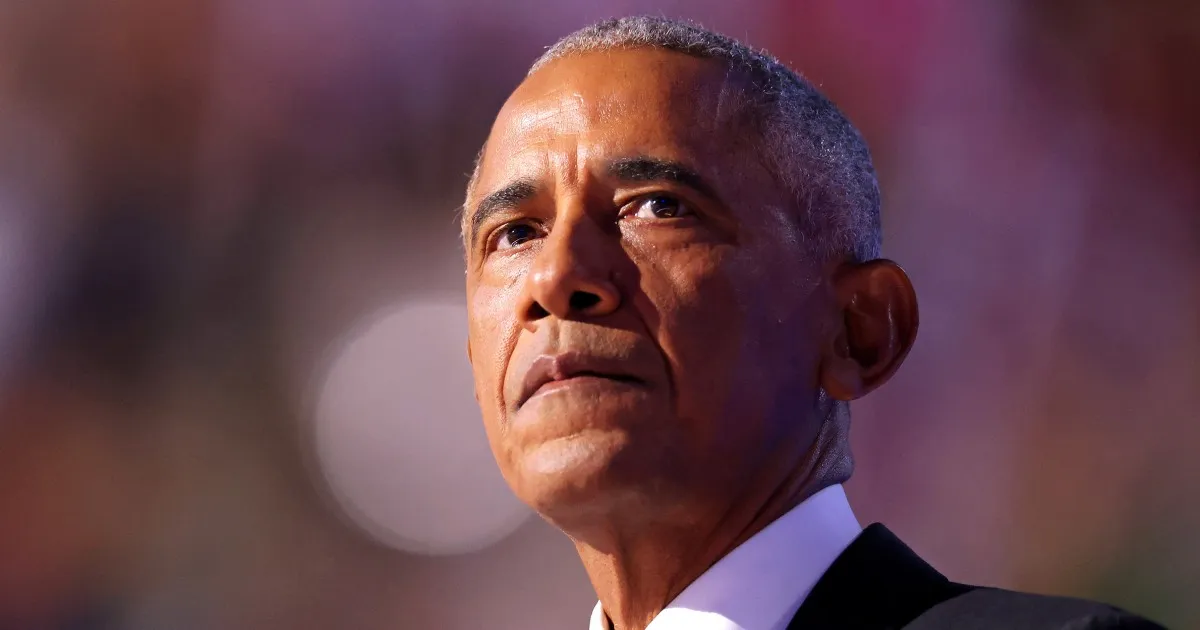
On Tuesday, former President Barack Obama's office issued a rare public rebuke of current President Donald Trump following the latter's accusations of treason and election rigging related to the 2016 and 2020 presidential elections. This extraordinary response came from Obama spokesperson Patrick Rodenbush, who stated, "Out of respect for the office of the presidency, our office does not normally dignify the constant nonsense and misinformation flowing out of this White House with a response. But these claims are outrageous enough to merit one."
During a press conference, President Trump pivoted from discussing the late convicted sex offender Jeffrey Epstein to making bold accusations against Obama. He claimed, "After what they did to me — and whether it’s right or wrong, it’s time to go after people. Obama’s been caught directly." Trump further asserted that the actions taken by the Obama administration during the 2016 and 2020 elections were "criminal at the highest level," calling it treason and suggesting that they attempted to steal the election.
Trump's remarks referenced statements made by National Intelligence Director Tulsi Gabbard and CIA Director John Ratcliffe, who alleged that Obama administration officials manipulated intelligence to undermine Trump's electoral victory. Gabbard went as far as to announce a criminal referral to the Justice Department based on her claims. In response, Rodenbush criticized the Trump administration for misleading the public about the evidence supporting its allegations.
Rodenbush emphasized that nothing in a recently released document undermined the consensus that Russia sought to influence the 2016 presidential election, although it did not successfully manipulate any votes. This conclusion was further supported by a 2020 report from the bipartisan Senate Intelligence Committee, led by then-Chairman Marco Rubio.
When asked to comment on Obama's statement, White House spokesperson Davis Ingle expressed appreciation for Gabbard’s commitment to transparency and her efforts to combat the weaponization of government against American citizens. Gabbard contended that documents show Russia did not interfere in the election for Trump's benefit, contradicting numerous investigations that have reached different conclusions.
Contrary to Gabbard's assertions, the Obama administration had never claimed that Russian cyberattacks affected the election results. In December 2016, Obama publicly stated, "I can assure the public that there was not the kind of tampering with the voting process that was of concern.” He noted that while Russia interfered by leaking documents and spreading misinformation, the votes cast were counted accurately.
Special Counsel Robert Mueller and a subsequent Senate report corroborated the finding that Russia aimed to disrupt the election process. Mueller's investigation, which lasted for over three years, examined claims of politicization within the Russia-related investigations but did not find evidence of the level of criminality that Trump has alleged. The Senate report explicitly stated that Russia’s goal was to assist Trump's campaign.
Democratic lawmakers have accused the Trump administration of attempting to rewrite history to appease its supporters. Senator Mark Warner from Virginia remarked that this represents a troubling trend of manipulating information to undermine trust in intelligence agencies. House Democratic Caucus Chair Pete Aguilar described the situation as a distraction, noting that the administration would release anything to divert attention from pressing issues.
In recent days, Trump has reignited old grievances while facing backlash from his supporters concerning the Epstein case. He has utilized his Truth Social platform to make further accusations against Democratic officials, indicating a broader strategy of deflection. Meanwhile, the Justice Department has been busy releasing thousands of files related to significant historical events, including the assassination of civil rights leader Martin Luther King Jr., adding another layer to the ongoing political discourse.